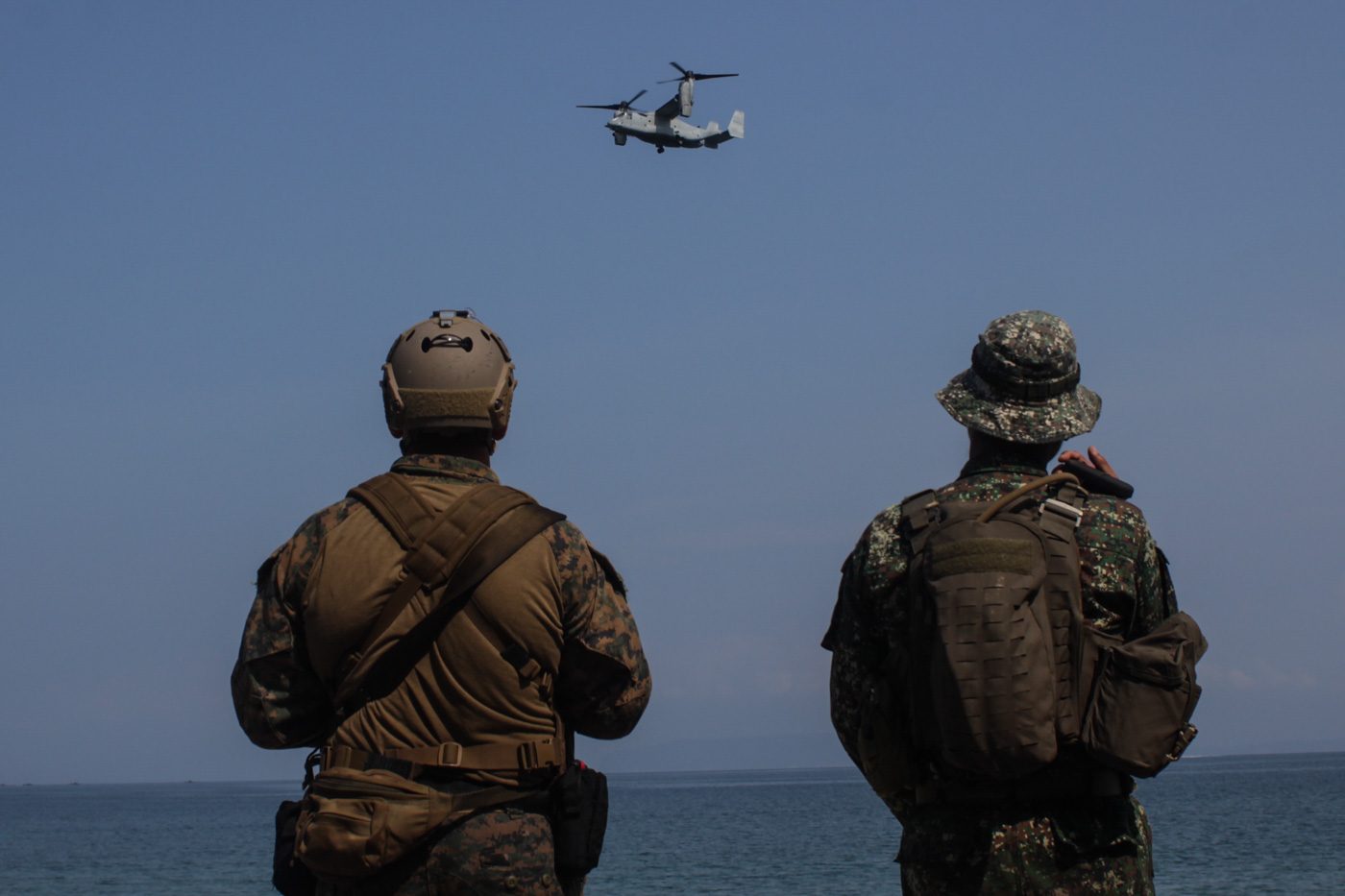SUMMARY
This is AI generated summarization, which may have errors. For context, always refer to the full article.

Members of the Philippine military are generally against the termination of the Visiting Forces Agreement (VFA) with the US, said two senior officers who spoke on condition of anonymity on Tuesday, February 11, hours after President Rodrigo Duterte officially ordered to scrap the deal.
Members of Duterte’s Cabinet and several senators have warned against abrogating the VFA, which allows for the regular conduct of large-scale joint military exercises, and strategic cooperation in actual missions, particularly on intelligence and surveillance in counterterrorism. (READ: Timeline: Duterte’s threats to terminate the VFA)
“We don’t like the termination, of course,” one senior military officer told Rappler when asked about the sentiment within the Armed Forces of the Philippines (AFP).
“It’s disadvantageous to us,” another officer – a general – told defense reporters in a message.
Without the VFA, the Philippine and US militaries would “lose the capacity to exercise meaningfully” because US troops would then be subjected to regular immigration processes such as securing visas if they were to stay in the Philippines for more than 21 days, the general said.
The VFA waived passport and visa requirements for US servicemen and women provided their full military credentials are vouched for by the US authority in charge of a particular exercise or activity in the Philippines. This paved the way for the entry of entire naval crews and marine battalions for regular drills with Filipino counterparts.
The two militaries hold an average of 300 joint activities every year, some of which run from several weeks to months, including preparations.
Pride contest
Although the two sides may revert to small-scale exercises the way they were done before the VFA’s ratification in 1999, the lack of familiarity could lead to “pataasan ng ihi” or pride contests between the two militaries, the general said.
Scrapping the VFA would also entail the pullout of US troops stationed in parts of Mindanao, where they assist the AFP in intelligence gathering and surveillance in counterterrorism.
“They would have to be pulled out because without the VFA, their stay wouldn’t be covered,” the general said.
It would also put to waste effective protocols learned over the years, the general added, such as those from the 2017 battle for the city of Marawi, which was retaken from the Maute terrorist group after a 5-month siege. Intelligence sharing and tactical consultations with US forces helped the AFP eliminate the terrorist leaders and regain control of the city.
There would be disadvantages to the US, too. Losing military presence in the Philippines would leave a “central hole” in the US’ strategic cover in the Asia Pacific, because the Philippine archipelago straddles the South China Sea and the Pacific Ocean.
‘He didn’t listen to the Cabinet’
Eventually and inevitably, bilateral relations with the US will sour, the general said.
“He didn’t listen to the Cabinet. That’s the problem,” he added.
Duterte’s order came despite Foreign Secretary Teodoro Locsin Jr’s warnings against terminating the VFA – that it would not benefit Philippine interests. Instead, he recommended a “vigorous review” of the agreement.
Defense Secretary Delfin Lorenzana told a Senate panel on Thursday, February 6, that the US had given $1.3 billion in aid to the Philippines’ defense establishment since 1998, the year the VFA was signed.
Duterte consulted neither Lorenzana nor Locsin before ordering the VFA’s termination, both Cabinet members told the Senate.
The Senate itself urged Duterte on Monday, February 10, to reconsider his order.
Commander-in-Chief
Duterte, who is also commander-in-chief of the military, ordered the scrapping of the VFA on January 3, after his political ally Senator Ronald “Bato” dela Rosa said that his US visa had been revoked. Duterte told the US to restore Dela Rosa’s visa within a month or else lose the VFA.
It appears Dela Rosa’s visa was cancelled as part of sanctions based on the US Senate’s application of the Global Magnitsky Act to operators of Duterte’s violent “war on drugs.” Dela Rosa, as Duterte’s first police chief, had launched and carried out “Oplan Tokhang,” the campaign that has killed at least 6,000 people by government estimates, or more than 20,000 according to rights advocates.
On Tuesday, the US embassy in Manila said in an official statement that abrogating the military pact would have “significant implications” on relations between the two countries, and that the US government “will carefully consider how best to move forward to advance our shared interests [with the Philippines].”
According to the VFA, termination begins 180 days after a notice is sent to the concerned party. – Rappler.com
Add a comment
How does this make you feel?
There are no comments yet. Add your comment to start the conversation.